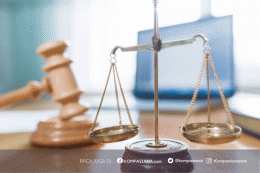In that way, it is possible to endanger the inviolability of personal rights, the right to residence, the privacy of correspondence, the expression of opinion, freedom of assembly, the establishment of organizations and the inviolability of property. the interpretation of 48 of the Weimar Constitution itself was widely set and abused, which provided for the possibility of suspension of constitutionally guaranteed personal and civil rights.
In that way, it is possible to endanger the inviolability of personal rights, the right to residence, the privacy of correspondence, the expression of opinion, freedom of assembly, the establishment of organizations and the inviolability of property. the interpretation of 48 of the Weimar Constitution itself was widely set and abused, which provided for the possibility of suspension of constitutionally guaranteed personal and civil rights. In that way, it is possible to endanger the inviolability of personal rights, the right to residence, the privacy of correspondence, the expression of opinion, freedom of assembly, the establishment of organizations and the inviolability of property.
The repression of the Third Reich regime is well known.
In this example, too, the theoretical justification of this constitution is quite clear. The leadership of Nazi Germany sought to legitimize and organize its regime in accordance with legally recognized principles. However, the practical application of the 1933 Act (based on the interpretation of 48 of the Weimar Constitution) which created a legal basis for the use of radical methods in restricting constitutionally established rights and freedoms caused human rights violations of unprecedented proportions and the deaths of millions.
Democratic Kampuchea
The Constitution of Democratic Kampuchea was adopted in 1976, just one year after the Khmer Rouge came to power. That Constitution was adopted without significant imitation of the examples of other states. The text of the Constitution consists of 16 chapters and 21 articles. Individual rights and duties of the individual are briefly and generally defined within Chapter 9. Thus established the right of every resident of Cambodia to continuously improve their material, spiritual and cultural life, the right to life of Cambodian citizens is guaranteed, workers are masters of their factories and peasants of their fields, the possibility of unemployment in the state was rejected, full equality of the Cambodian peoples was established, full equality of men and women was envisaged, and polygamy was forbidden.
The overlooked rights of citizens are determined very generally and to an insufficient extent. In that way, even the few regulated rights remained mere formulations without real content. The Constitution does not provide for a whole range of rights, which are a common subject of constitutional regulation (freedom of personal belief and expression, guarantees of individual security, inviolability of the home, privacy of correspondence, protection of freedom of the press, the right to assemble and form associations). directly or indirectly leave room for the radical methods of the totalitarian regime, for example, Article 10 stipulates that dangerous activities that threaten the people's state must be strongly condemned, or Article 20, which establishes an absolute ban on all reactionary religions harmful to Democratic Kampuchea and its people.







